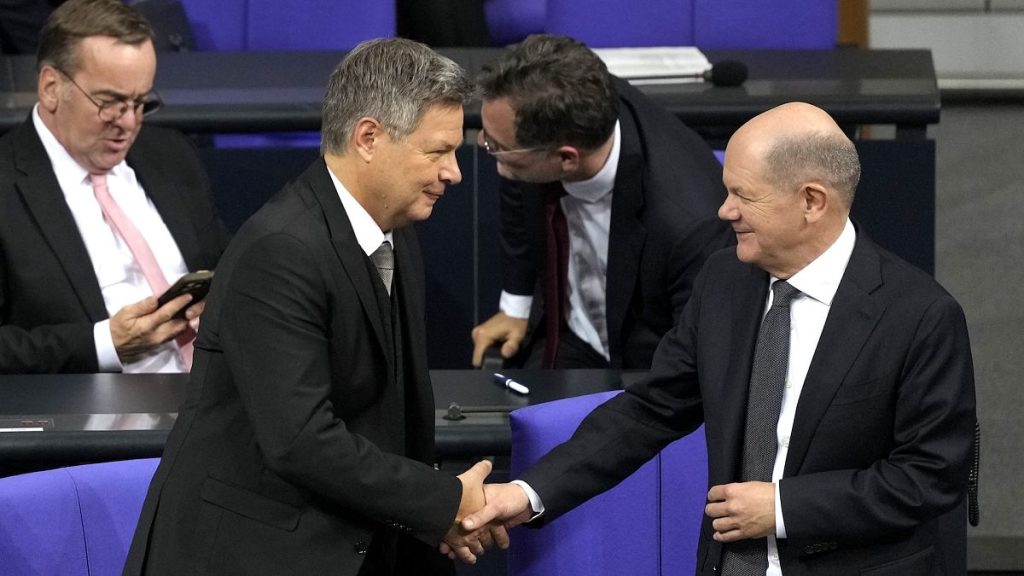Paragraph 1: A Glimmer of Optimism Amidst Economic Uncertainty
Germany’s economic outlook presents a mixed picture, characterized by a recent surge in financial expert optimism contrasted by persistent pessimism among businesses. The ZEW Economic Sentiment Index, reflecting the six-month outlook of financial analysts, jumped to a four-month high in December, exceeding market expectations. This positive shift is attributed to anticipated pro-investment policies following Germany’s snap elections and the prospect of further interest rate cuts by the European Central Bank (ECB). These anticipated policy changes are seen as potential catalysts for economic recovery. However, this optimism is tempered by a worsening assessment of the current economic situation, with the corresponding ZEW sub-index plummeting to its lowest level since May 2020.
Paragraph 2: Drivers of Improved Financial Sentiment
Several factors contribute to the improved outlook among financial experts. The upcoming snap elections in Germany have sparked hopes for economic policies that encourage private investment. The ECB’s recent interest rate cut, coupled with expectations of further reductions in the coming year, also fuels optimism. These measures are seen as crucial for stimulating economic activity and addressing inflationary pressures. The ZEW President, Achim Wambach, emphasized these factors, highlighting the potential for a positive shift in economic trajectory. The political uncertainty surrounding the snap elections, while potentially disruptive, has also created an environment of anticipation for policy changes that could benefit the economy.
Paragraph 3: Eurozone Sentiment Echoes German Optimism, but Challenges Remain
The positive sentiment extends beyond Germany, with the ZEW Economic Sentiment Index for the eurozone also climbing in December, exceeding market forecasts. Similar to Germany, the optimism within the euro area is linked to the expectation of further ECB rate cuts and the potential for policy adjustments in member states. However, the current situation indicator for the eurozone declined significantly, highlighting the ongoing economic struggles across the region. The divergence between improving sentiment and the challenging current reality underscores the fragility of the recovery.
Paragraph 4: Business Reality Paints a Bleaker Picture: The Ifo Survey
While financial experts express cautious optimism, the ifo Business Climate Index, which surveys German businesses across various sectors, reveals a starkly contrasting perspective. The ifo index fell to its lowest point since May 2020 in December, underscoring the deep-seated pessimism within the business community. Although the subindex for current business conditions showed marginal improvement, business expectations for the future plummeted to their lowest level since early 2024. This disconnect between financial market optimism and business sentiment highlights the challenges facing German businesses in the near term.
Paragraph 5: Divergent Methodologies Explain the ZEW-ifo Gap
The conflicting results from the ZEW and ifo surveys can be attributed to their differing methodologies and focus. The ZEW survey gauges the outlook of financial experts who analyze macroeconomic trends, monetary policy, and global market dynamics, making it sensitive to anticipations of interest rate changes and political developments like the German snap elections. In contrast, the ifo survey focuses on the direct experiences of businesses, reflecting their immediate operational challenges, including weak demand, global competition, and rising input costs. This difference in perspective explains the divergence in sentiment, with financial experts looking at broader trends while businesses grapple with daily realities.
Paragraph 6: Navigating the Confidence Gap: Challenges and Opportunities
The contrasting views between financial markets and businesses create a complex economic landscape for Germany. While financial markets, as reflected in the surging DAX index, align with the optimism of financial experts, businesses remain cautious about the future. The persisting pessimism within the business community underscores the challenges posed by inflationary pressures, trade uncertainties, and weak demand. This divergence raises concerns about stagflation, a combination of slow economic growth and high inflation. Navigating this confidence gap will require careful policy decisions, balancing the need for economic stimulus with the imperative to control inflation. The upcoming snap elections and the ECB’s monetary policy decisions will be crucial in shaping Germany’s economic trajectory in the coming year.














